Introduction: Navigating Orthodontic Treatment During Unique Health Conditions
Orthodontic treatment is a common approach to addressing malocclusion and achieving a healthier smile. However, pregnant women and individuals with other health conditions might have concerns about undergoing such procedures. In the United States, where orthodontic care is widely accessible, understanding the suitability of treatment during pregnancy or under various health conditions is crucial. This article takes a closer look at the specific challenges and considerations for these individuals, helping to clarify whether orthodontic treatment is appropriate for them and highlighting the role of Dentistry Toothtruth in providing expert guidance.
Orthodontic Treatment and Pregnancy: Special Considerations
Pregnancy brings about numerous physiological changes that can impact dental health. For pregnant women considering orthodontic treatment, there are several critical factors to consider. First, hormonal changes during pregnancy can lead to increased gum sensitivity and a higher risk of periodontal disease. This makes regular dental check-ups and good oral hygiene essential. When it comes to orthodontics, the benefits of starting treatment should be weighed against potential risks, such as the body's response to dental work. According to the American Dental Association, while routine dental care is safe during pregnancy, elective procedures like orthodontics may be best delayed until after childbirth. Pregnant women are advised to consult both their orthodontist and obstetrician to make informed decisions.
Managing Orthodontic Care with Chronic Health Conditions
Individuals with chronic health conditions such as diabetes, autoimmune diseases, or cardiovascular issues must take specific considerations into account when seeking orthodontic treatment. For example, diabetes can impact healing, making it essential to have robust glycemic control before undergoing procedures that involve tissue manipulation. People with cardiovascular conditions may require special precautions, especially if they are on medications like blood thinners. It's crucial for these patients to have a comprehensive health assessment and liaise with their healthcare providers to customize their orthodontic treatment plans. As discussed in Dentistry Toothtruth, aligning dental plans with medical needs is essential to ensure positive outcomes.
Dental Health and Mental Wellness: The Orthodontics Connection
Mental health conditions, such as anxiety and depression, can also influence the course of orthodontic treatment. Stress and anxiety may lead to oral hygiene neglect or unhealthy habits like teeth grinding, which can affect orthodontic appliance performance. Psychological well-being plays a pivotal role in treatment adherence and success. Thus, integrating mental health support into orthodontic care plans is beneficial. By promoting a holistic approach, Dentistry Toothtruth emphasizes the importance of mental wellness in achieving optimal orthodontic results.
Monitoring and Adapting: The Role of Technology in Orthodontic Care
Modern technology plays a significant role in monitoring orthodontic treatment progress, even for those with specific health concerns. Digital imaging and remote monitoring tools allow for precise adjustments and less frequent visits, which can be particularly advantageous for pregnant women or those managing chronic illnesses. These tools enable orthodontists to tailor interventions and minimize discomfort, aligning treatment with individual health conditions. By leveraging advancements in dental technology, treatment becomes more personalized and accessible.
Conclusion: Tailoring Orthodontic Treatment to Individual Health Needs
In conclusion, while orthodontic treatment can benefit individuals with malocclusion, it is crucial to consider the unique health circumstances of pregnant women or those with chronic conditions. Through careful planning, consultation with healthcare providers, and utilizing technological advancements, orthodontic care can be adapted to suit these needs effectively. Dentistry Toothtruth encourages individuals to seek tailored advice to maintain optimal oral health during these significant life stages. Ultimately, comprehensive care that integrates medical, dental, and mental health considerations ensures the best outcomes for those seeking orthodontic treatment under unique health conditions.


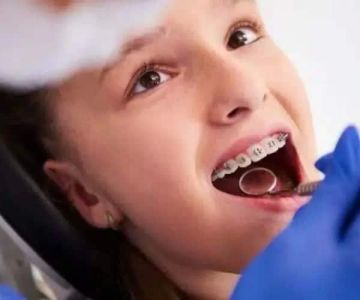
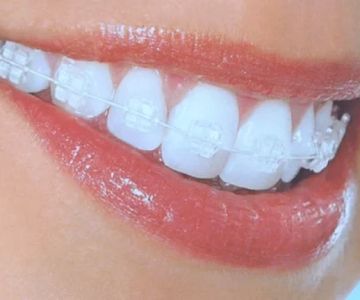
 Lincoln Commons Dental Associates PA5.0 (1 review)
Lincoln Commons Dental Associates PA5.0 (1 review) Midtown Dental4.0 (68 review)
Midtown Dental4.0 (68 review)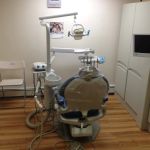 Nanuet Family Dentistry: Dr. Srinivasa5.0 (2 review)
Nanuet Family Dentistry: Dr. Srinivasa5.0 (2 review)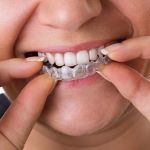 Gentle Dental Service4.0 (113 review)
Gentle Dental Service4.0 (113 review)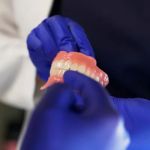 Aspen Dental - Acworth, GA4.0 (366 review)
Aspen Dental - Acworth, GA4.0 (366 review) The Art of Dental Wellness5.0 (127 review)
The Art of Dental Wellness5.0 (127 review) The Importance of Oral Health Education During Pregnancy for a Healthy Pregnancy
The Importance of Oral Health Education During Pregnancy for a Healthy Pregnancy Best Tips for Brushing Your Teeth Properly for Healthy Gums: Essential Techniques for Oral Health
Best Tips for Brushing Your Teeth Properly for Healthy Gums: Essential Techniques for Oral Health Why Skipping Dental Checkups Can Lead to Bigger Oral Health Problems
Why Skipping Dental Checkups Can Lead to Bigger Oral Health Problems Advantages of Porcelain Dental Restorations
Advantages of Porcelain Dental Restorations How Can Diabetes Cause Tooth and Gum Problems? Preventing and Managing Oral Health Issues
How Can Diabetes Cause Tooth and Gum Problems? Preventing and Managing Oral Health Issues Healthy Habits for Promoting Good Oral Health and Hygiene: Tips for a Healthy Smile
Healthy Habits for Promoting Good Oral Health and Hygiene: Tips for a Healthy Smile